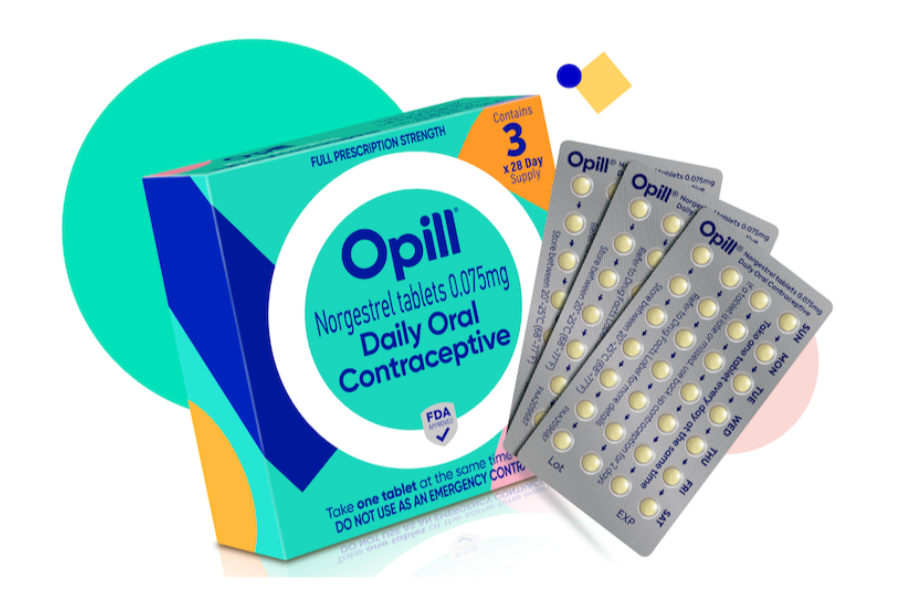Access To Birth Control: The Impact Of Over-the-Counter Options Post-Roe

Table of Contents
Increased Accessibility and Convenience
Expanding access to birth control is paramount, and making it available over-the-counter offers a significant pathway to achieving this goal. Currently, many barriers prevent individuals from obtaining the birth control they need.
Breaking Down Barriers to Access
Numerous obstacles hinder access to birth control, disproportionately affecting vulnerable populations.
- Geographical limitations: Many rural areas lack sufficient healthcare providers, creating significant barriers for those seeking contraception.
- Financial constraints: The cost of birth control, including doctor visits and prescription fees, can be prohibitive for low-income individuals.
- Logistical challenges: Scheduling appointments, arranging transportation, and taking time off work can create insurmountable hurdles for some.
These barriers contribute to unmet contraceptive needs. The Guttmacher Institute reports that millions of women in the U.S. lack access to the birth control they need. Over-the-counter birth control could significantly alleviate these barriers. Rural populations would gain easier access, low-income individuals could avoid expensive doctor visits, and logistical challenges would be minimized. This increased accessibility to birth control directly translates to improved reproductive health outcomes.
Enhanced Privacy and Autonomy
Privacy concerns are a significant factor in accessing reproductive healthcare. Many individuals feel uncomfortable discussing their reproductive health with healthcare providers, particularly in conservative communities.
- Stigma: The stigma surrounding birth control can make it difficult for some people to seek care.
- Confidentiality: OTC access protects patient confidentiality, empowering individuals to manage their reproductive health discreetly.
- Self-management: OTC birth control allows for increased self-management of reproductive health, fostering autonomy and empowerment.
The ability to obtain birth control privately can significantly impact contraceptive choices. Fear of judgment or lack of privacy can influence decisions, and OTC access removes this barrier. This empowerment allows individuals to make informed choices about their bodies and futures.
Potential Impacts on Public Health
Increased access to birth control offers substantial public health benefits, extending beyond individual autonomy.
Reduced Rates of Unintended Pregnancy
A strong correlation exists between increased access to contraception and decreased rates of unintended pregnancy.
- Contraceptive effectiveness: Highly effective methods like IUDs and implants, while requiring a doctor's visit for insertion, reduce the need for frequent purchases of other contraceptives.
- Abortion reduction: Increased contraceptive use leads to a significant reduction in the number of unintended pregnancies, consequently lowering abortion rates.
Wider access to birth control translates to fewer unintended pregnancies, resulting in improved maternal and child health outcomes, and reduced strain on the healthcare system. The cost savings associated with preventing unintended pregnancies – including prenatal care, childbirth, and potential long-term health issues for both mother and child – are considerable.
Addressing Health Disparities
Access to healthcare, including reproductive healthcare, is unevenly distributed across different populations.
- Racial and ethnic minorities: These groups often face systemic barriers to healthcare access, resulting in higher rates of unintended pregnancies.
- Low-income individuals: Financial constraints limit access to affordable and effective birth control.
Over-the-counter birth control can help mitigate these disparities by providing equitable access to essential reproductive healthcare regardless of socioeconomic status or ethnicity. By removing financial and logistical barriers, OTC options promote health equity and improve overall reproductive health outcomes for all populations.
Potential Challenges and Concerns
While the benefits of OTC birth control are substantial, potential challenges must be addressed.
Misinformation and Self-Medication
The risk of misinformation and self-medication is a significant concern.
- Comprehensive sex education: Robust sex education programs are crucial to provide accurate information about various contraceptive methods and their proper use.
- Risks of improper use: Incorrect use of birth control can lead to unintended pregnancies or other health complications.
Public awareness campaigns and educational initiatives are vital to ensure safe and effective use of OTC birth control. Clear, accessible information about different methods, potential side effects, and proper usage is crucial.
Regulatory and Legal Hurdles
Regulatory and legislative hurdles can impede the path to OTC birth control.
- Religious opposition: Religious groups may oppose wider access to birth control, lobbying against legislative changes.
- FDA regulations: The FDA's approval process for OTC medications can be lengthy and complex.
Navigating the regulatory landscape and addressing potential opposition will require strategic advocacy and collaboration among stakeholders. Transparency and public discourse are critical to addressing concerns and ensuring a smooth transition to OTC availability.
Conclusion
Increased access to birth control, particularly through over-the-counter options, is crucial for improving reproductive healthcare outcomes in a post-Roe America. While challenges related to misinformation and regulatory hurdles exist, the benefits in terms of accessibility, convenience, and public health are undeniable. Expanding access to birth control through OTC availability is a critical step towards ensuring reproductive freedom and empowering individuals to make informed decisions about their reproductive health. We must continue to advocate for policies that support wider access to birth control and strive to overcome the remaining obstacles to achieve truly equitable and comprehensive reproductive healthcare for all. Let's work together to improve access to birth control and empower individuals to control their reproductive health.

Featured Posts
-
 Fenerbahce De Yeni Bir Doenem Dusan Tadic In Tarihi Transferi
May 20, 2025
Fenerbahce De Yeni Bir Doenem Dusan Tadic In Tarihi Transferi
May 20, 2025 -
 Trade Wars And Brand Identity How Porsche Navigates The Ferrari Mercedes Tightrope
May 20, 2025
Trade Wars And Brand Identity How Porsche Navigates The Ferrari Mercedes Tightrope
May 20, 2025 -
 Premier League Forward Manchester United And Newcastle In Transfer Battle
May 20, 2025
Premier League Forward Manchester United And Newcastle In Transfer Battle
May 20, 2025 -
 Marc Lievremont A Millau Un Souvenir Inoubliable
May 20, 2025
Marc Lievremont A Millau Un Souvenir Inoubliable
May 20, 2025 -
 Suki Waterhouses On This Love Lyrics And Meaning Explained
May 20, 2025
Suki Waterhouses On This Love Lyrics And Meaning Explained
May 20, 2025
